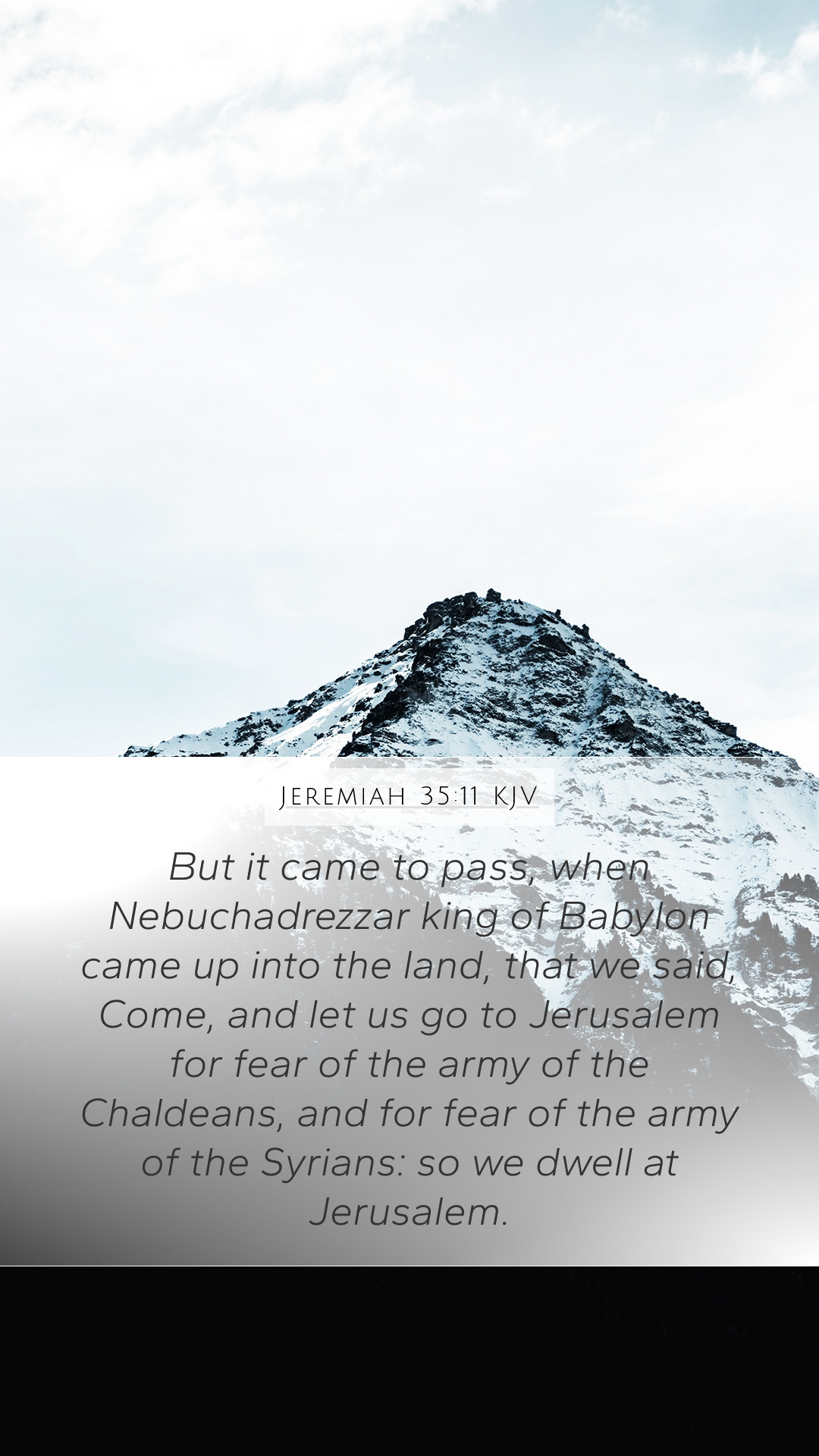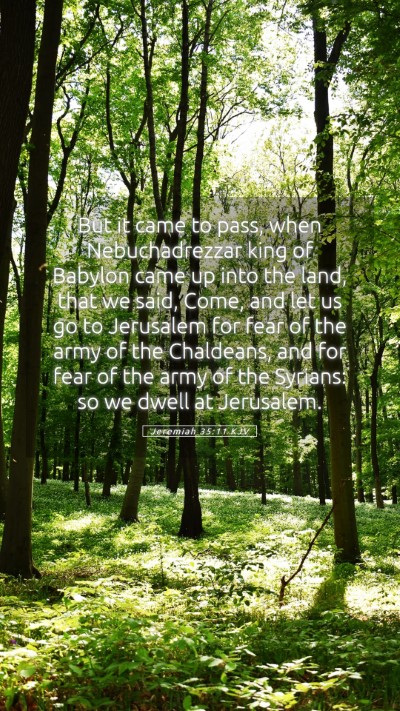Bible Verse Meaning and Interpretation: Jeremiah 35:11
The verse Jeremiah 35:11 states:
"But it came to pass, when Nebuchadrezzar king of Babylon came up into the land, that we said, 'Come, and let us go to Jerusalem for fear of the army of the Chaldeans, and for fear of the army of the Syrians.' So we dwelt at Jerusalem." (Jeremiah 35:11, KJV)
Overview of the Verse
This verse captures a moment during a time of turmoil for the Israelites, specifically addressing the reactions of the Rechabites when faced with siege and fear from powerful armies. It reflects the historical context of the Babylonian threat which led many to seek refuge. The Rechabites, known for their adherence to a nomadic lifestyle and their strict adherence to the commands of Jonadab, the son of Rechab, display a significant contrast between their lifestyle and that of the people around them.
Key Themes in Jeremiah 35:11
-
The Importance of Obedience:
The Rechabites exemplify obedience to the traditions set by their forefather, showcasing the importance of commitment to one's principles even in times of crisis.
-
Fear as a Motivator:
The fear of the Chaldean and Syrian armies led them to abandon their lifestyle of nomadic purity to seek safety in Jerusalem. This portrays how fear can compel individuals and communities to act contrary to their values.
-
Divine Sovereignty:
Despite their actions, the overarching theme of God’s control over nations and events highlights that human actions are often a part of God’s larger plan, regardless of the circumstances.
Bible Commentary Insights
According to Matthew Henry, this verse demonstrates the impact of external pressures on the Rechabites, who were otherwise committed to their vow of living a life free from the distractions of cities and agriculture. He emphasizes that even those who strive to live according to God’s commands may face challenges that test their faith and commitments.
Albert Barnes elaborates on the dynamics of the Rechabites’ decision to flee to Jerusalem, analyzing it within the context of historical and political factors that compelled them to abandon their homes. He notes this as an act of survival, raising questions about the balance between faithfulness to God and the instinct for self-preservation.
Adam Clarke brings attention to the identity of the Rechabites and their lineage, suggesting that their decision was rooted in both preservation and the preservation of their cultural identity. He points out the irony in seeking refuge in a place that symbolized comfort yet was also under threat, reflecting the duality of human choices.
Application and Relevance
This scripture opens a pathway for deeper Bible study insights concerning how external pressures can affect personal convictions and community practices. The Rechabites serve as a reminder of the need for resilience and fidelity to one’s values, even amidst societal turmoil.
For individuals participating in Bible study groups or engaging in online Bible study, this verse can prompt discussions around:
- How do we balance our faith with societal pressures?
- What can we learn from the Rechabites’ commitment to their father’s commands?
- In times of crisis, how does our understanding of God’s sovereignty influence our actions?
Cross References
This verse finds resonance in several other Bible passages that emphasize themes of faithfulness and divine sovereignty, including:
- Jeremiah 35:1-10: The background of the Rechabites’ commitment.
- Isaiah 26:20-21: The call to God for refuge during tumultuous times.
- Hebrews 11:39-40: The commendation of those who lived by faith.
Conclusion
Jeremiah 35:11 serves as a significant point of reflection upon the nature of faith, societal pressures, and obedience to God's commands. It encourages readers to delve deeper into their understanding of Bible verse meanings, and assists in answering the question, What does Jeremiah 35:11 mean? By integrating insights from historical analysis and personal application, this verse remains relevant in our modern context.


